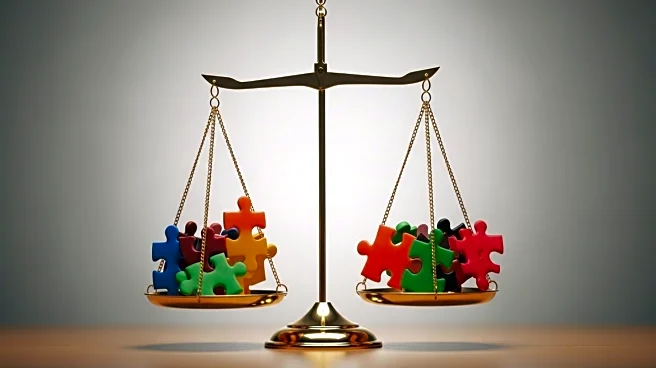What's Happening?
In Jerusalem, a conflict has arisen between the municipality and several ultra-Orthodox school administrators regarding the admission of Sephardic girls into predominantly Ashkenazi high schools. These schools have historically maintained unofficial ethnic divisions, which have now come under scrutiny as the new academic year begins. The controversy highlights ongoing tensions within the Israeli education system, where ethnic segregation remains a contentious issue.
Why It's Important?
The situation underscores the persistent ethnic divides within Israeli society, particularly in educational institutions. The exclusion of Sephardic students from Ashkenazi schools reflects broader societal issues of discrimination and segregation. This has implications for social cohesion and equality in Israel, as it affects the educational opportunities and integration of minority groups. Addressing these divides is crucial for fostering a more inclusive society and ensuring equal access to education for all ethnic groups.
What's Next?
The municipality may need to intervene to ensure compliance with anti-discrimination policies and promote integration within schools. This could involve policy changes or increased oversight to prevent ethnic segregation. Stakeholders, including parents and community leaders, are likely to engage in discussions to address these issues and advocate for more inclusive practices. The outcome of these efforts could set a precedent for how ethnic diversity is managed in educational settings across Israel.
Beyond the Headlines
The controversy raises ethical questions about the role of education in perpetuating or challenging societal norms. It highlights the need for a broader dialogue on ethnic identity and integration in Israel, which could influence cultural and policy shifts. Long-term, addressing these issues may contribute to reducing ethnic tensions and promoting a more unified national identity.









